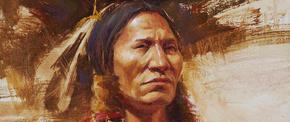The views expressed in our content reflect individual perspectives and do not represent the authoritative views of the Baha'i Faith.
Everyone wants social justice—but Plato wisely said that “Justice in the life and conduct of the State is possible only as first it resides in the hearts and souls of the citizens.”
I had a dear friend named Reinee Pasarow who truly hungered to find that justice in her own life, and in the hearts and souls of everyone.
Bless her heart, Reinee passed away in early 2020—and not for the first time—which means she can no longer recount the remarkable story of her quest for justice here in this world. She and I spent hours talking about the subject, and she spoke about it in Baha’i meetings at my home several times, so I’ll try to tell her story instead.
RELATED: Do Baha’is Believe in Life After Death?
As a sensitive, intelligent, but not very physically healthy young girl, Reinee had all kinds of physical allergies, and one especially prominent spiritual allergy, too. She hated injustice. Reinee, growing up in the civil rights and Vietnam war era, yearned to encounter justice somewhere. She dreamed about it constantly. Disturbed by the gross injustices of war and racism, she craved meeting “the people of the just,” a phrase that came to her in a recurring dream she started having as a young girl and kept having as a teenager. Night after night while sleeping, she told me, she searched the world in her dreams for some person or group of people who could exemplify justice. It became her most ardent inner desire. She felt that justice must exist someplace in the world, and she made it her life’s goal to find it.
Then one day in 1966 when she was 16, while having lunch at home with her mother and father, Reinee ate some strawberries.
Unknowingly highly allergic to them, she quickly went into anaphylactic shock, a reaction that soon shut down her airway and made her blood pressure drop precipitously. By the time the paramedics arrived, she had no vital signs, but they rushed her to a hospital anyway—a trip that took almost half an hour. The emergency physician on duty unsuccessfully attempted to restart her silent heart, and then gave up and declared her dead.
But Reinee—who later became the renowned subject of many near-death-experience (NDE) studies and media reports—said that she fully retained her consciousness and her personality even as her body shut down and died. She remembered each word the paramedics and the hospital employees and doctors said, even the medical and pharmaceutical terms she could not have otherwise known. Later she accurately recounted every action they took to try to save her, although her breathing and her heart had completely stopped and she had been pronounced dead. Afterwards, the medical professionals determined that Reinee had clinically expired for 45 minutes, until her family physician rushed into the hospital and brought her back to life.
When Reinee’s body failed her, she began her journey to the next world. (Listen to her talk about it here on BahaiTeachings and at many other places on the web.)
Reinee ascended, as she described it, to a place that had no place. As many others who have had near-death experiences also report, she traveled through a tunnel of light. She witnessed an entire life review, and learned that the honors and accolades she once received in the material world meant nothing—that only the love she had for others remained important. She “heard the world singing,” as she put it, able in her ascendance to view the entire globe and feel it pulsing with life. Then, ushered into the overwhelming presence of a holy being, without verbalizing it Reinee asked her heart’s one burning question: “Where are the people of the just?”
RELATED: What do Near-Death Experiences Really Tell Us?
Immediately, she saw a dazzling building on a mountain, and instantly knew that it contained the people she had searched for. The image of that building, she said, burned into her consciousness.
The Baha’i teachings exalt justice, and ask every human being to pursue it by helping build a global society formed on the principles of fair and equitable treatment for all.
Reinee only found out much later, after her near-death experience led her to become a Baha’i in her late teens, that the building she saw did not yet exist when she died in 1966. In fact, the seat of the Universal House of Justice at the Baha’i World Centre on Mt. Carmel in Haifa, Israel wasn’t constructed and completed until 1983. But the first time she saw a picture of that Universal House of Justice building, Reinee said with a sense of amazement, she immediately recognized it as the one she glimpsed in her near-death experience, and her quest for the people of the just finally made sense.
Know verily that the essence of justice and the source thereof are both embodied in the ordinances prescribed by Him Who is the Manifestation of the Self of God amongst men, if ye be of them that recognize this truth. He doth verily incarnate the highest, the infallible standard of justice unto all creation. – Baha’u’llah, Gleanings from the Writings of Baha’u’llah.
The imperfect members of society, the weak souls in humanity, follow their natural trend. Their lives and actions are in accord with their natural propensities; they are captives of physical susceptibilities; they are not in touch or in tune with the spiritual bounties. Man has two aspects: the physical, which is subject to nature, and the merciful or divine, which is connected with God. If the physical or natural disposition in him should overcome the heavenly and merciful, he is, then, the most degraded of animal beings; and if the divine and spiritual should triumph over the human and natural, he is, verily, an angel. The Prophets come into the world to guide and educate humanity so that the animal nature of man may disappear and the divinity of his powers become awakened. The divine aspect or spiritual nature consists of the breaths of the Holy Spirit. The second birth of which Jesus has spoken refers to the appearance of this heavenly nature in man. It is expressed in the baptism of the Holy Spirit, and he who is baptized by the Holy Spirit is a veritable manifestation of divine mercy to mankind. Then he becomes just and kind to all humanity; he entertains prejudice and ill will toward none; he shuns no nation or people. – Abdu’l-Baha, The Promulgation of Universal Peace.
Reinee has finally made her way to the next world, where I dearly hope her sensitive soul has found its home among the people of the just.

















Comments
Sign in or create an account
Continue with Facebookor